Essential Nutritional Guide for French Bulldog Puppies
DR
Best French Bulldog Puppy Food Guide: Top Nutrition Tips

Discover the best french bulldog puppy food to support growth and health. Our guide covers essential nutrients, top brands, and feeding tips for a happy Frenchie.
Raising a French Bulldog puppy can be a rewarding experience, but it comes with its own set of challenges, especially when it comes to nutrition. These adorable pups require a carefully balanced diet to ensure they grow into healthy adults. In this guide, we'll explore the best food options and feeding practices for your Frenchie puppy to ensure they receive all the nutrients they need. We'll delve deeper into understanding their unique nutritional needs, explore various food options, and provide insights into establishing a feeding routine that will keep your puppy healthy and happy.
French Bulldogs are a unique breed with specific dietary needs. Due to their compact size and muscular build, they require a diet rich in protein and healthy fats. Additionally, Frenchies are prone to specific health issues, such as brachycephalic syndrome and hip dysplasia, which makes it even more important to feed them the right foods. Understanding these needs is critical in preventing potential health problems and ensuring your puppy's optimal growth.
Key Nutrients for Frenchie Puppies
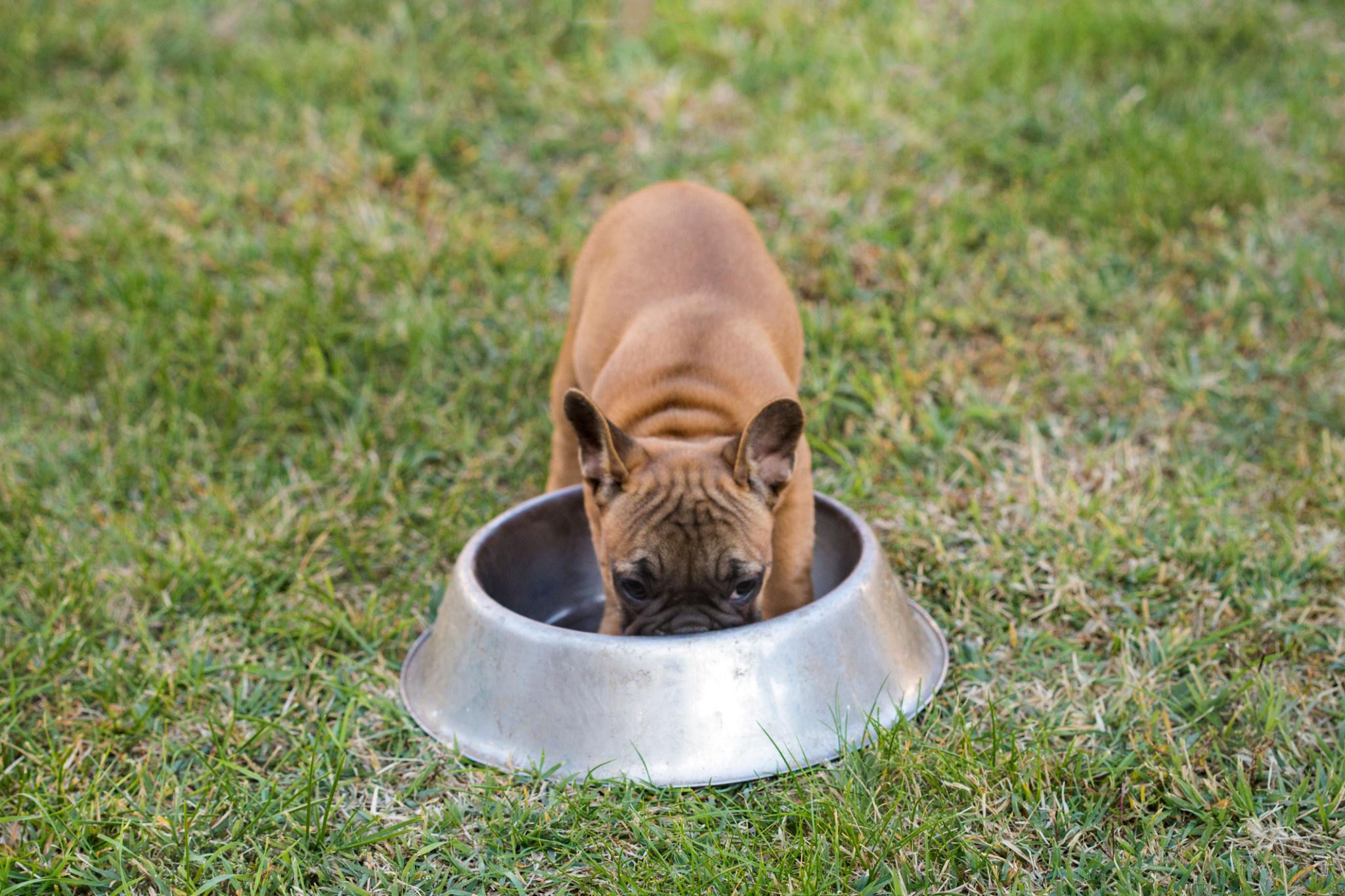
To support their growth and development, French Bulldog puppies need a diet containing:
High-Quality Proteins
Proteins are essential for muscle development and overall growth. Look for dog foods that list real meat, such as chicken or beef, as the first ingredient. Protein helps build and repair tissues, making it crucial for the development of a strong and healthy Frenchie. It is also important to consider the source of protein, as some proteins are more digestible and beneficial than others.
Healthy Fats
Fats are vital for energy and maintaining a healthy coat. Omega-3 and Omega-6 fatty acids are particularly beneficial. These fats not only provide a concentrated source of energy but also play a significant role in brain development and skin health. Including sources of healthy fats like fish oil or flaxseed oil can enhance your puppy's coat shine and support cognitive function.
Vitamins and Minerals
Vitamins and minerals are important for bone development and immune system support. Ensure the food contains calcium, phosphorus, and a variety of vitamins. These nutrients contribute to strong bones and teeth, while also supporting the puppy's metabolic and nervous system functions. A balanced intake of vitamins and minerals can protect your puppy from deficiencies and related health issues.
Carbohydrates
Carbohydrates provide energy but should be balanced with protein and fats to prevent weight gain. Opt for complex carbohydrates like sweet potatoes and brown rice, which offer sustained energy release. Carbohydrates can also provide fiber, which is important for healthy digestion. However, it's important to monitor the carbohydrate intake to avoid excessive weight gain, which can lead to health issues.
What Is the Best Food to Feed Frenchies?

Choosing the best food for your French Bulldog puppy can be daunting with so many options available. Here's a breakdown of what to look for when selecting the best food for a Frenchie puppy. Understanding the differences between dry and wet food and recognizing quality ingredients can guide you to make informed decisions that benefit your puppy's health.
Dry vs. Wet Food
Dry Food (Kibble)
Dry food offers convenience and dental health benefits as it helps reduce tartar buildup. Look for kibble specifically formulated for puppies to ensure it meets their nutritional needs. The crunchy texture of kibble can promote dental hygiene by reducing plaque and tartar. It is also easy to store and measure, making feeding time more efficient.
Wet Food

Wet food is higher in moisture content, which can be beneficial for hydration. It's often more palatable, but it can be more expensive and may lead to dental issues if not balanced with dry food. The high moisture content can be particularly beneficial for puppies who don't drink enough water. However, mixing wet food with kibble can help mitigate potential dental issues.
Combination Feeding
A combination of dry and wet food can offer the benefits of both options. This approach provides hydration from the wet food and dental benefits from the dry food. By offering a mix, you can cater to your puppy's preferences while ensuring they receive a balanced diet. It's important to adjust portion sizes to maintain a healthy weight.
Ingredients to Look For
When selecting French Bulldog puppy food, prioritize high-quality ingredients:
Real Meat
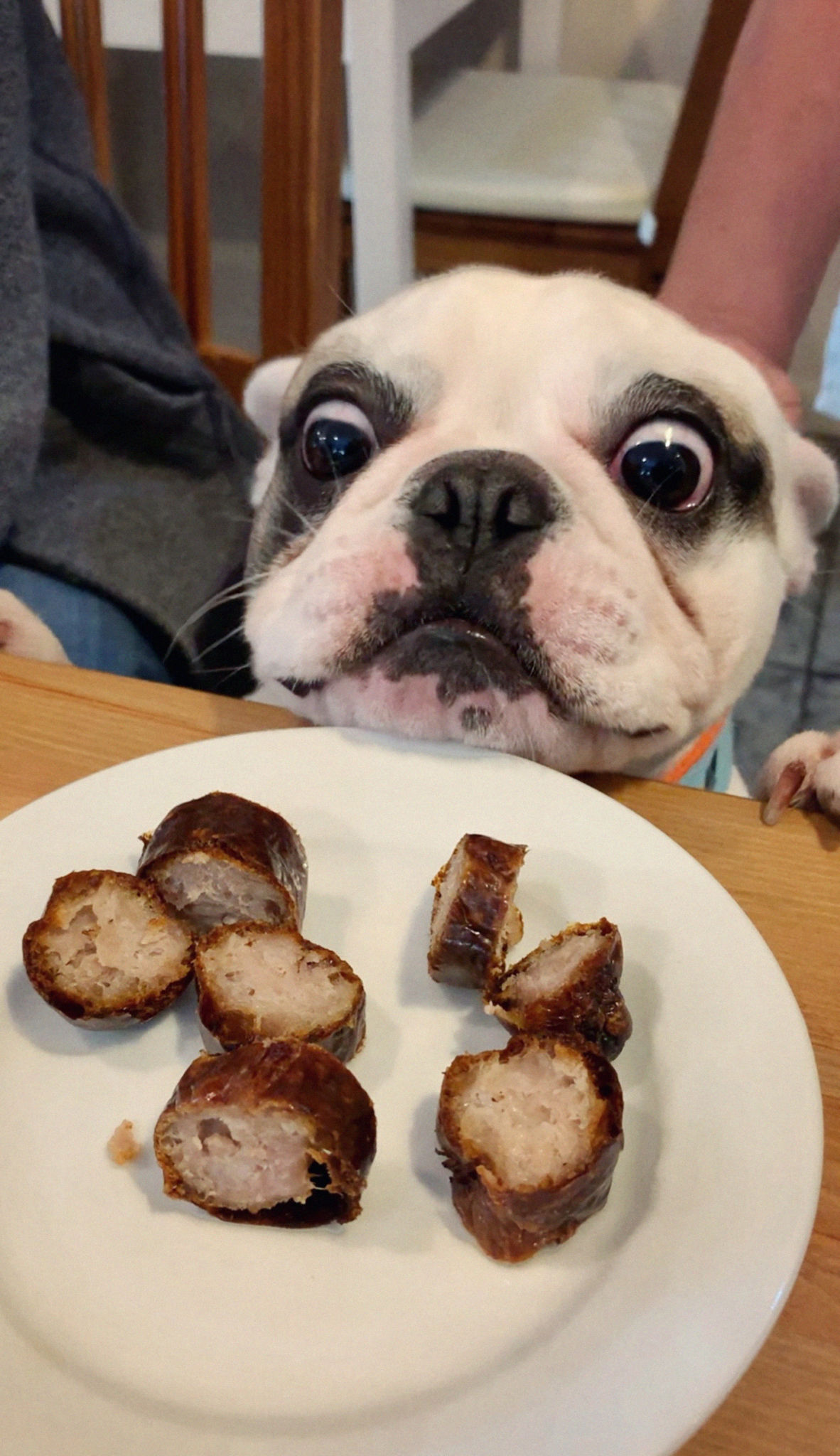
Real meat should be the primary ingredient. Avoid foods with meat by-products or fillers like corn and soy. Real meat provides essential amino acids necessary for muscle development and maintenance. Choosing foods with named meats, such as chicken, beef, or lamb, ensures that your puppy receives high-quality protein sources.
Whole Grains
Whole grains like brown rice or oatmeal provide energy and fiber. These grains are more nutritious than refined grains and can support digestion. They offer a steady release of energy, which is important for active puppies. Including whole grains in your puppy's diet can also aid in maintaining a healthy weight.
Fruits and Vegetables
Fruits and vegetables offer essential vitamins and antioxidants. Look for foods that include carrots, sweet potatoes, and blueberries. These ingredients can boost your puppy's immune system and promote overall health. Antioxidants from fruits and vegetables can also protect cells from damage and support healthy aging.
Avoid These Ingredients
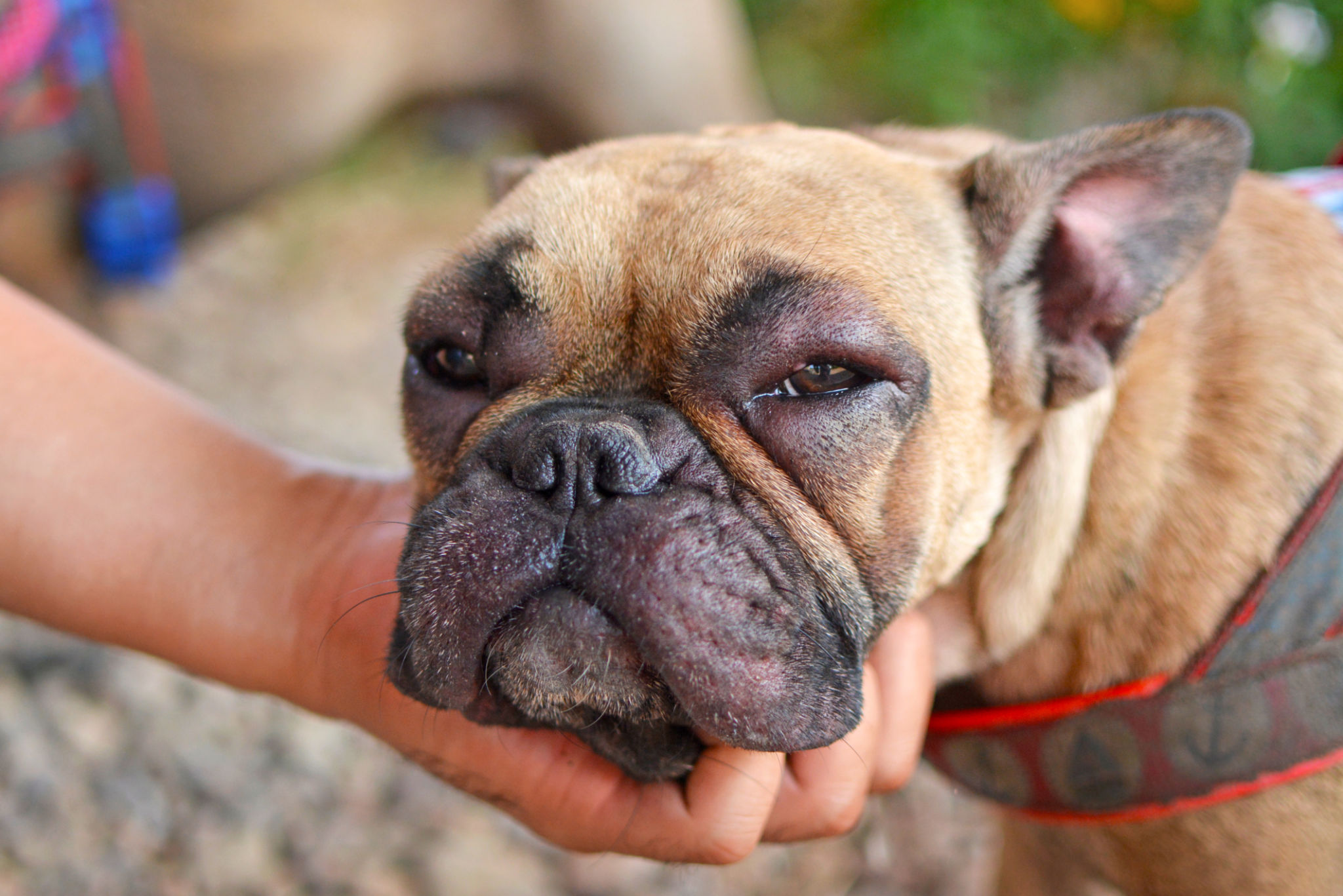
Certain ingredients can be harmful or less beneficial to French Bulldogs:
Artificial Additives
Preservatives, colors, and flavors should be avoided. These additives can cause allergic reactions or digestive issues in some puppies. Opting for natural ingredients ensures that your puppy's diet is free from unnecessary chemicals. Always check labels for any artificial ingredients that could be potentially harmful.
Excessive Fats and Sugars
Excessive fats and sugars can contribute to obesity and health issues. Monitor fat and sugar content to prevent weight-related problems. Foods high in unhealthy fats or sugars can lead to weight gain and associated health risks like diabetes. It is crucial to choose foods that provide balanced nutrition without excess calories.
Common Allergens
Common allergens such as wheat and dairy can cause digestive issues in some Frenchies. Be aware of your puppy's tolerance to these ingredients. If your puppy shows signs of allergies, such as itching or gastrointestinal upset, consider switching to a hypoallergenic diet. Consulting with a vet can help identify any specific dietary sensitivities.
Best Brands for French Bulldog Puppies
Here are some recommended brands that offer high-quality dog food for French Bulldog puppies. These brands are known for their commitment to quality ingredients and balanced nutrition tailored to the needs of growing Frenchies.
Royal Canin French Bulldog Puppy
Royal Canin is specifically formulated for the breed and contains the right balance of nutrients to support growth and digestive health. This brand focuses on breed-specific needs, providing tailored nutrition for French Bulldog puppies. It includes ingredients that support healthy skin, coat, and digestion, making it a popular choice among Frenchie owners.
Blue Buffalo Life Protection Puppy Formula
Blue Buffalo is known for using natural ingredients with real meat as the first ingredient, making it a great option for ensuring your puppy gets the necessary nutrients. This brand avoids artificial additives and fillers, focusing on wholesome ingredients. The Life Protection Formula includes LifeSource Bits, a blend of antioxidants, vitamins, and minerals, supporting immune system health.
Hill's Science Diet Puppy
Hill's Science Diet offers a well-balanced diet that supports healthy growth and development with high-quality ingredients. It is formulated to meet the nutritional needs of puppies, ensuring they receive essential nutrients. The brand's commitment to scientific research and high-quality standards makes it a trusted choice for pet owners.
Feeding Schedule and Portion Control
Establishing a feeding schedule is crucial for maintaining your puppy's health. Here's a basic guideline to help you create a routine that supports your puppy's growth and development. Consistency in feeding times can promote healthy digestion and establish a sense of security for your Frenchie.
Feeding Frequency

8-12 Weeks Old
During this stage, puppies require four meals per day. Their rapidly growing bodies need frequent nourishment. Small, frequent meals prevent hypoglycemia and support steady growth. Ensure each meal is balanced with the necessary nutrients to fuel their development.
3-6 Months Old
As your puppy grows, transition to three meals per day. This adjustment aligns with their slowing growth rate. At this stage, meals can be slightly larger to meet their energy needs. Consistent meal times help regulate their metabolism and digestion.
6-12 Months Old
Reduce to two meals per day as your puppy approaches adulthood. This routine supports their maturing digestive system. Two balanced meals per day provide sustained energy and maintain a healthy weight. Adjust portion sizes based on their activity level and growth rate.
Portion Sizes
The portion size depends on the food's caloric content and your puppy's age, weight, and activity level. Always refer to the feeding guidelines provided on the dog food packaging and consult your veterinarian to tailor the portions to your puppy's specific needs. Monitoring your puppy's weight and body condition ensures they receive adequate nutrition without overfeeding.
Homemade Diets for Frenchie Puppies
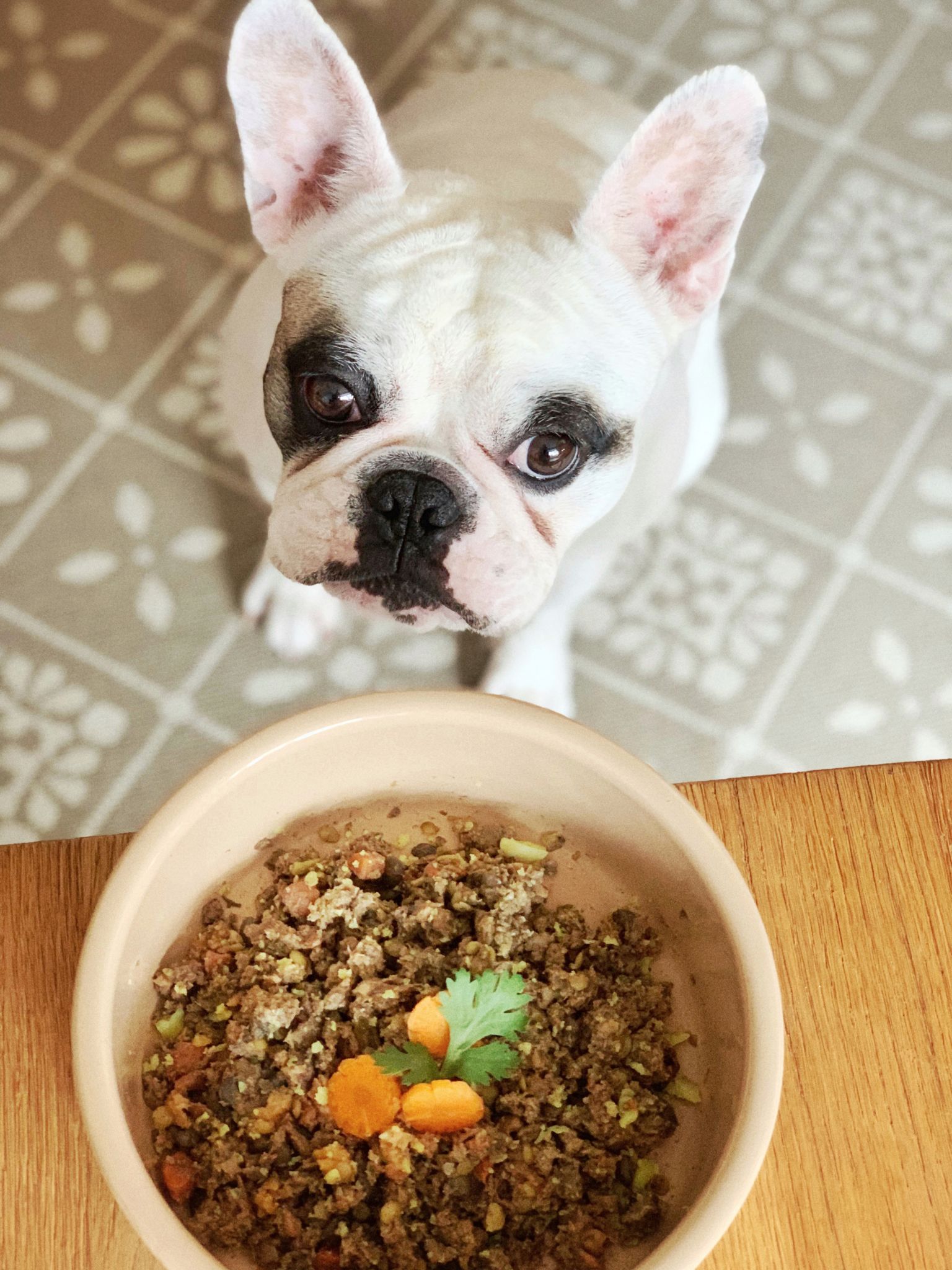
Some owners prefer preparing homemade meals for their French Bulldogs to have complete control over the ingredients. If you choose this route, ensure the diet is balanced with essential nutrients. Homemade diets require careful planning to meet all of your puppy's nutritional needs.
Lean Proteins
Include lean proteins such as chicken, turkey, or fish. These proteins are essential for muscle growth and repair. Cooking meat thoroughly ensures it is safe and digestible for your puppy. Variety in protein sources can provide a range of amino acids necessary for optimal health.
Whole Grains
Whole grains like quinoa or brown rice provide energy and fiber. These grains support digestion and sustained energy release. Cooking grains properly makes them more digestible, enhancing nutrient absorption. Including whole grains in meals contributes to a balanced homemade diet.
Vegetables
Incorporate vegetables such as spinach, carrots, and peas for essential vitamins and minerals. These vegetables offer antioxidants and support overall health. Steaming or lightly cooking vegetables can enhance nutrient availability. Including a variety of vegetables ensures a broad spectrum of nutrients.
Supplements
To ensure adequate vitamins and minerals, consult your vet for advice on necessary supplements. Homemade diets may lack certain nutrients, making supplementation crucial. A vet can recommend appropriate supplements to balance the diet. Regular check-ups help monitor your puppy's nutritional status.
Common Feeding Mistakes to Avoid
Avoid these common pitfalls when feeding your French Bulldog puppy. Awareness of potential mistakes can prevent health issues and ensure your puppy's optimal growth and development.
Overfeeding
Overfeeding can lead to obesity and related health issues. Stick to recommended portion sizes and avoid giving too many treats. Monitoring your puppy's body condition ensures they maintain a healthy weight. Adjust portions based on their activity level and growth rate.
Inconsistent Feeding Times
Inconsistent feeding times can disrupt digestion and routine. Maintain a regular feeding schedule to help with digestion and routine. Consistency in meal times establishes a sense of security for your puppy. A predictable routine supports overall well-being and behavior.
Feeding Table Scraps
Feeding table scraps can be harmful and contribute to weight gain. Human food often contains ingredients unsuitable for dogs. Avoiding table scraps prevents digestive issues and obesity. Providing appropriate dog treats ensures a balanced diet and healthy weight.
Conclusion
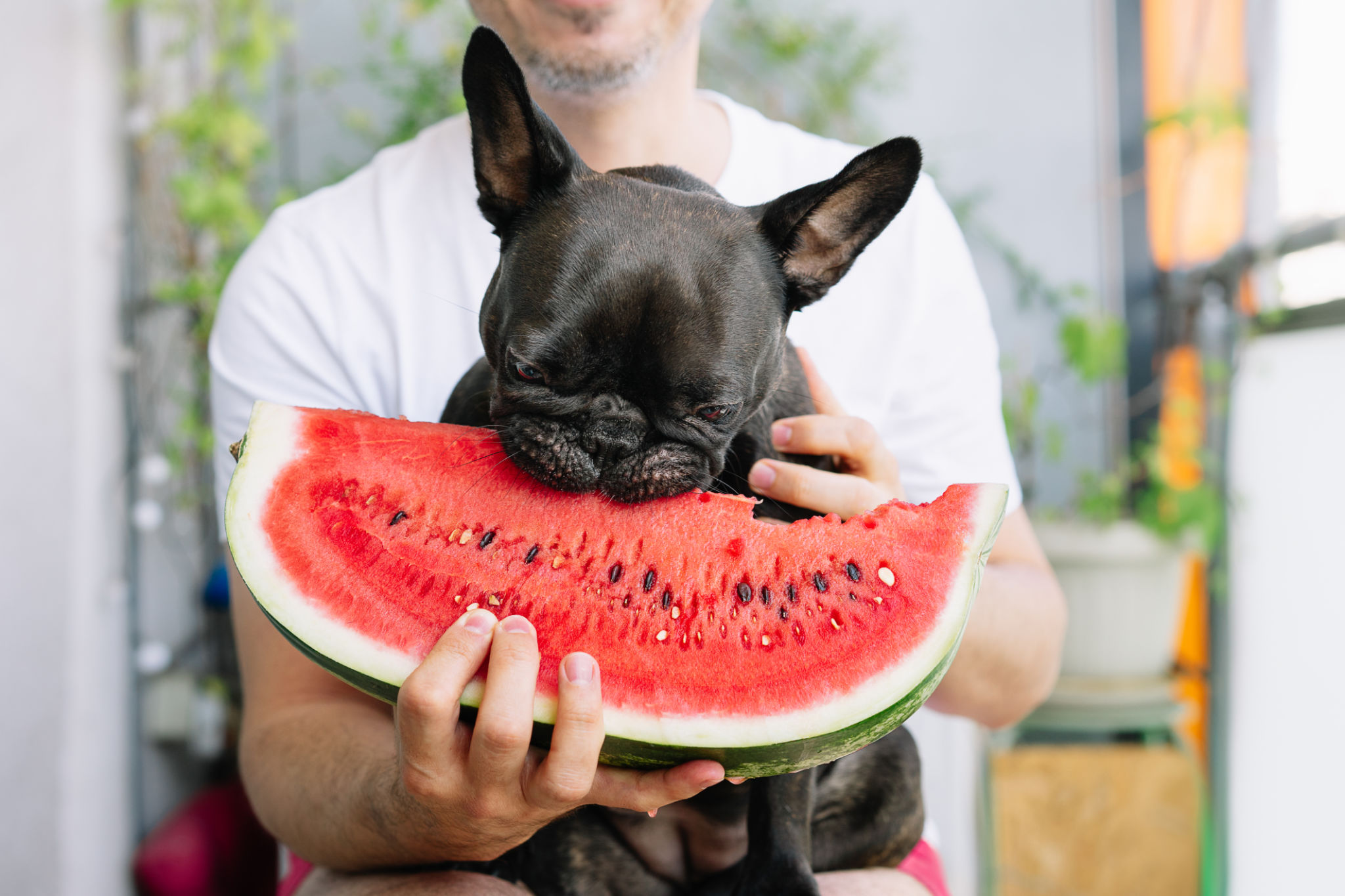
Feeding your French Bulldog puppy the right diet is crucial for their health and development. By choosing high-quality food and following proper feeding practices, you can ensure your Frenchie grows into a healthy adult. Always consult your veterinarian to tailor the diet to your puppy's specific needs and monitor their growth and health closely.
By understanding what to feed your French Bulldog puppy, you can provide the best start in life for your furry friend. Remember, a healthy Frenchie is a happy Frenchie! Regular veterinary check-ups and a balanced diet will keep your puppy thriving. Your commitment to their nutrition lays the foundation for a long and joyful life together.
Keywords:
best food for frenchie puppy, what is the best food to feed frenchies, french bulldog puppy food, best food for french bulldog puppy, dog food for frenchie puppy, frenchie puppy food, best diet for a french bulldog puppy, what to feed french bulldog puppy, frenchie best food, best food to feed french bulldog, best food to feed french bulldog puppy
